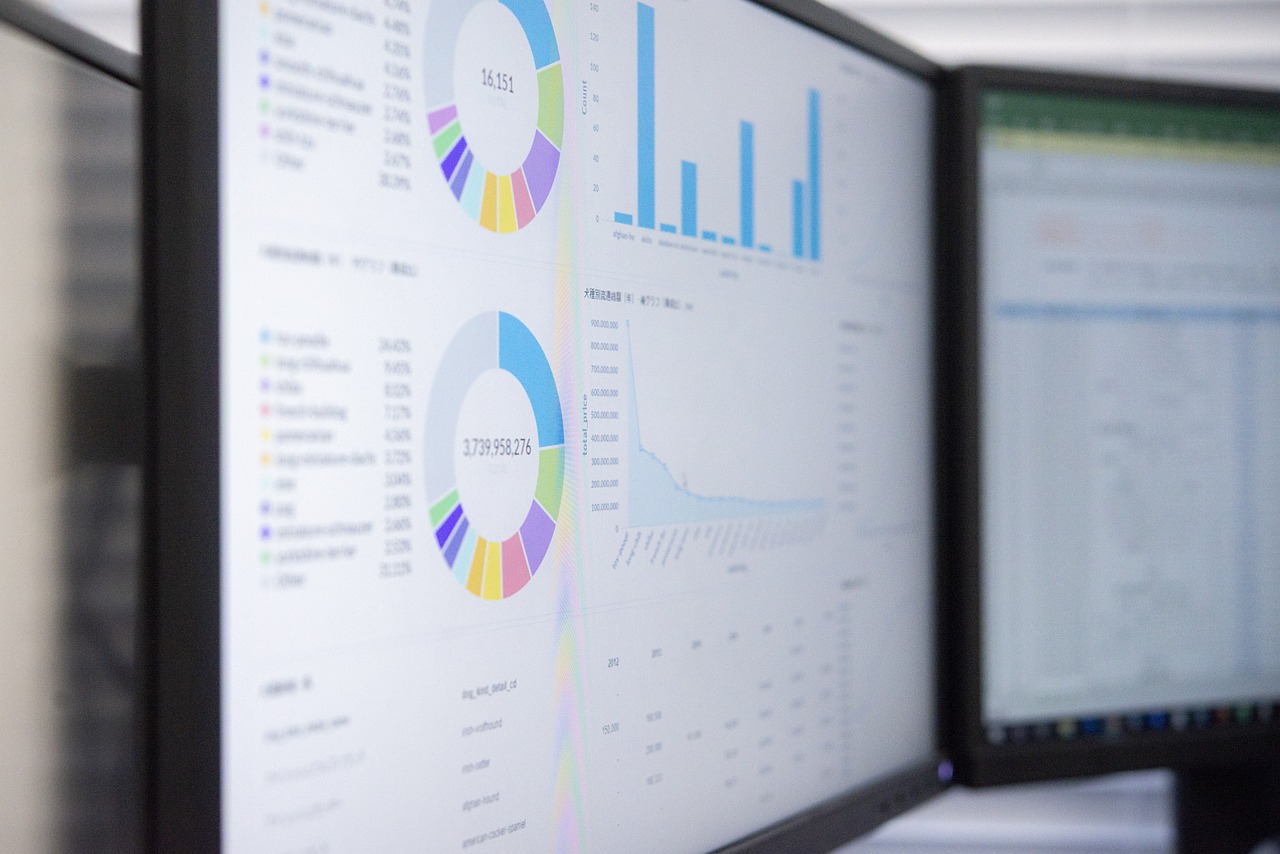In today’s data-driven business landscape, selecting the right data analytics software is crucial for organizations aiming to gain valuable insights, streamline decision-making processes, and drive growth. The best data analytics software tools empower businesses to transform raw data into actionable intelligence, enabling them to stay competitive in an increasingly complex market. This comprehensive guide will explore the top contenders in the data analytics software arena, helping you make an informed decision tailored to your specific business needs.
Key Factors to Consider When Choosing Data Analytics Software
Before delving into specific tools, it’s essential to understand the critical factors that should influence your choice of data analytics software. These factors will help you evaluate each tool’s suitability for your organization’s unique requirements.
Scalability
As your business grows, so does your data. Choosing a scalable analytics solution is paramount to ensure long-term viability and avoid costly migrations down the line. Consider the following aspects of scalability:
- Data volume handling capacity
- User concurrency support
- Performance under increased workloads
- Ability to add new data sources seamlessly
- Support for expanding analytical capabilities
Integration Capabilities
Seamless integration with existing business systems is crucial for maximizing the value of your data analytics tool. Here’s a comparison of integration features across top tools:
| Tool | API Support | Pre-built Connectors | Custom Integration Options |
|---|---|---|---|
| Tableau | Extensive | 75+ | REST API, Web Data Connector |
| Power BI | Robust | 100+ | Power Query, Custom Visuals |
| KNIME | Comprehensive | 40+ | Custom Nodes, Workflow Sharing |
| Looker | Advanced | 50+ | Looker API, Embedded Analytics |
| Sisense | Flexible | 80+ | REST API, Custom Widgets |
User-Friendliness
An intuitive user interface is essential, especially for organizations with non-technical users. Here’s a comparison of user ratings on ease of use:
| Tool | User Rating (1-5) | Key User-Friendly Features |
|---|---|---|
| Tableau | 4.5 | Drag-and-drop interface, natural language queries |
| Power BI | 4.3 | Familiar Microsoft interface, AI-powered insights |
| KNIME | 4.0 | Visual workflow creation, extensive documentation |
| Looker | 4.2 | Customizable dashboards, LookML for data modeling |
| Sisense | 4.4 | AI-driven insights, user-specific dashboards |
Cost Considerations
Understanding the pricing models and potential hidden costs is crucial for budgeting and ROI calculations. Here’s a breakdown of pricing options for various tools:
| Tool | Pricing Model | Entry-Level Cost | Enterprise Cost |
|---|---|---|---|
| Tableau | Per-user subscription | $70/user/month | Custom pricing |
| Power BI | Tiered subscription | $9.99/user/month | $4,995/month/dedicated cloud compute and storage |
| KNIME | Open-source core, paid extensions | Free (core) | Custom pricing for commercial extensions |
| Looker | Annual contract | Custom pricing | Custom pricing |
| Sisense | Annual license | Custom pricing | Custom pricing |
Top Data Analytics Tools for Small and Medium Businesses (SMBs)

SMBs require affordable, user-friendly solutions that provide robust analytics capabilities without overwhelming complexity. Here are some top choices:
Tableau Public
Tableau Public offers a free version of its popular analytics platform, making it an excellent choice for startups and small businesses with limited budgets. Key features include:
- Powerful data visualization capabilities
- Integration with various data sources
- Community-driven resources and templates
- Ability to publish and share visualizations online
While Tableau Public is free, it’s important to note that all published visualizations are publicly accessible, which may not be suitable for sensitive business data.
Microsoft Power BI
Microsoft Power BI stands out as a cost-effective solution, especially for businesses already invested in the Microsoft ecosystem. Its strengths include:
- Seamless integration with Microsoft 365 applications
- User-friendly interface familiar to Excel users
- Robust data modeling and DAX formula language
- Mobile app for on-the-go analytics
Power BI’s Pro version starts at an affordable $9.99 per user per month, making it accessible for SMBs while offering enterprise-grade features.
KNIME
KNIME (Konstanz Information Miner) is an open-source data analytics platform that provides a comprehensive suite of tools for data preprocessing, machine learning, and visualization. Benefits for SMBs include:
- No upfront costs for the core platform
- Visual workflow design for complex data processes
- Extensive library of pre-built nodes and extensions
- Active community support and learning resources
While the core platform is free, KNIME offers commercial extensions and support for businesses requiring additional functionality or assistance.
Best Data Analytics Tools for Large Enterprises
Large enterprises require robust, scalable solutions capable of handling massive datasets and complex analytical needs. Here are top contenders in this category:
Looker
Looker, now part of Google Cloud, is a powerful business intelligence and big data analytics platform designed for enterprise-scale operations. Key features include:
- Real-time data analytics and exploration
- LookML, a proprietary modeling language for defining data relationships
- Embedded analytics capabilities for integrating insights into existing applications
- Robust data governance and security features
Looker’s pricing is customized based on specific enterprise needs, reflecting its focus on large-scale deployments.
Sisense
Sisense stands out for its ability to handle complex, disparate data sources and its advanced machine learning capabilities. Enterprise-friendly features include:
- In-chip™ technology for processing large datasets
- AI-driven anomaly detection and predictive analytics
- Customizable dashboards and white-labeling options
- Support for cloud, on-premises, and hybrid deployments
Sisense’s pricing is tailored to each organization’s specific requirements, making it suitable for enterprises with diverse analytical needs.
Talend
Talend specializes in data integration and big data management, making it an excellent choice for enterprises dealing with massive, varied data sources. Key strengths include:
- Comprehensive data quality and governance tools
- Support for real-time big data and IoT analytics
- Machine learning-powered data preparation
- Open-source foundation with enterprise-grade extensions
Talend’s pricing model includes both open-source components and commercial editions tailored to enterprise needs.
Specialized Tools for Data Visualization and Business Intelligence (BI)

For organizations focusing on data visualization and advanced BI capabilities, these specialized tools offer unique features:
Qlik
Qlik combines powerful analytics with intuitive data visualization, leveraging its associative engine for unique insights. Notable features include:
- Associative indexing for uncovering hidden relationships in data
- Augmented intelligence capabilities
- Self-service visualization and exploration
- Embedded analytics for integration into existing applications
| Feature | Qlik | Tableau | Power BI |
|---|---|---|---|
| Data Association | Native | Limited | Limited |
| Mobile Experience | Advanced | Good | Advanced |
| Scalability | High | High | Moderate |
| Customization | Extensive | Moderate | Moderate |
Domo
Domo stands out with its cloud-native architecture and focus on business-user-friendly interfaces. Key strengths include:
- Custom app-building capabilities within the platform
- Automated data pipeline management
- Extensive library of pre-built connectors
- Strong collaboration and sharing features
Domo’s pricing is customized based on specific business needs, reflecting its enterprise focus.
ThoughtSpot
ThoughtSpot differentiates itself with its search-driven analytics approach, making it exceptionally user-friendly for non-technical staff. Highlights include:
- Natural language search interface for data exploration
- SpotIQ AI engine for automated insights
- Embedded analytics capabilities
- In-memory calculation engine for fast performance
ThoughtSpot’s pricing is tailored to enterprise needs, with a focus on large-scale deployments.
Conclusion
Choosing the best data analytics software for your business requires careful consideration of factors such as scalability, integration capabilities, user-friendliness, and cost. For SMBs, tools like Tableau Public, Microsoft Power BI, and KNIME offer affordable yet powerful solutions. Large enterprises may find Looker, Sisense, or Talend more suitable for their complex needs. Specialized tools like Qlik, Domo, and ThoughtSpot cater to organizations prioritizing advanced visualization and BI capabilities.
Ultimately, the right choice depends on your specific business requirements, existing technology stack, and growth projections. By thoroughly evaluating these factors and testing different options, you can select a data analytics tool that will drive informed decision-making and propel your business forward in the data-driven economy.

